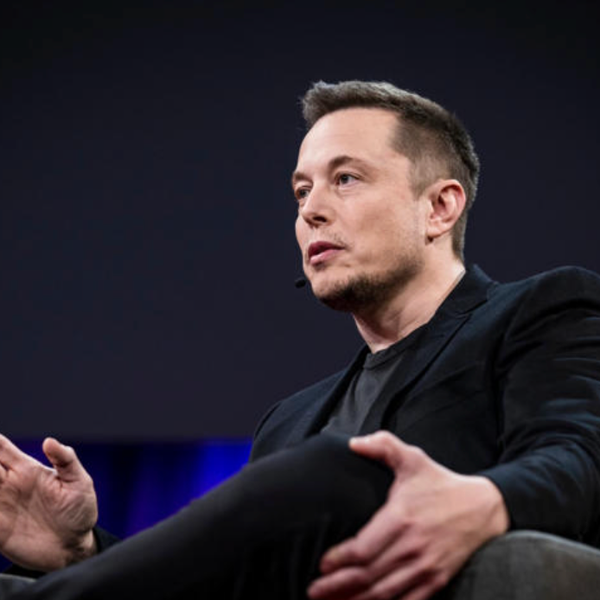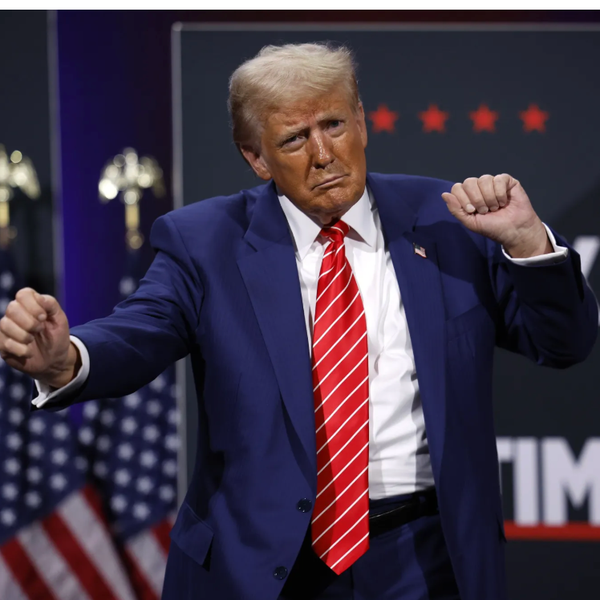Will Supreme Court's 'Originalist' Justices Permit Trump's Power Grab?

I think the Supreme Court will rule against President Donald Trump's imposition of tariffs. That said, it's just remarkable that the vote will not be 9-0.
Trump is claiming sweeping powers to impose (and rescind and reimpose and re-rescind) tariffs under the International Emergency Economic Powers Act of 1977 (IEEPA), which was a revised version of the Trading with the Enemy Act of 1917 (TWEA). The acronyms "I-EE-pah" and "TWEE-ah" flew around the courtroom like trapped sparrows.
The question for the Court was whether IEEPA actually grants the president power to impose tariffs — though the word "tariff" does not appear in the text of the law and no president has ever before interpreted the statute to grant taxing power. Addressing the justices on Wednesday, Solicitor General D. John Sauer argued that because the law grants the power to "regulate" trade in certain emergencies, it must also include the power to tariff.
But that's a huge leap, and the reason should be obvious to conservative justices who have claimed to be suspicious of overweening executive power. Striking down former President Joe Biden's student loan forgiveness, Justice Brett Kavanaugh said that "some of the biggest mistakes in the Court's history were deferring to assertions of executive emergency power," while "some of the finest moments in the Court's history were pushing back against presidential assertions of emergency power."
Yet when it came to Trump's imposition of crushing tariffs against every nation on the globe, Kavanaugh curled up at the feet of executive power like a purring cat. "The tariff on India, right? That's designed to help settle the Russia-Ukraine war, as I understand it," he said on Wednesday.
But that's a huge leap, and the reason should be obvious to conservative justices who have claimed to be suspicious of overweening executive power. Striking down former President Joe Biden's student loan forgiveness, Justice Brett Kavanaugh said that "some of the biggest mistakes in the Court's history were deferring to assertions of executive emergency power," while "some of the finest moments in the Court's history were pushing back against presidential assertions of emergency power."
Yet when it came to Trump's imposition of crushing tariffs against every nation on the globe, Kavanaugh curled up at the feet of executive power like a purring cat. "The tariff on India, right? That's designed to help settle the Russia-Ukraine war, as I understand it," he said on Wednesday.
Not quite. The tariff on India reportedly arose from Trump's pique at Prime Minister Narendra Modi's refusal to say (falsely) that Trump had negotiated a ceasefire between India and Pakistan and thus deserved the Nobel Peace Prize.
But let's grant for the sake of argument that Trump's 50 percent tariffs on India have a legitimate foreign policy purpose. How does Kavanaugh account for the extra 10 percent tariff on Canada in retaliation for a TV ad that embarrassed Trump by accurately quoting Ronald Reagan's opposition to tariffs? Or the 40 percent tariff on Brazil (a country with whom we ran a trade surplus) for trying and convicting his fellow election stealer Jair Bolsonaro? Kavanaugh should reread his own words about unwise deferral to executive authority.
As the Court of Appeals for the Federal Circuit ruled in August, imposing tariffs is a core congressional prerogative, and while the statute authorizes a number of discrete actions, tariffs were not among them.
This would seem to be a core point. When the president claims sweeping authority to impose taxes (tariffs) without congressional approval, he obtains his own independent income stream and Congress becomes a nullity. Article I, Section 8 of the Constitution specifically vests power in Congress to "lay and collect Taxes, Duties, Imposts and Excises." It is Congress, not the president, that is granted power "to regulate Commerce with foreign Nations." If the Supreme Court were to accept Trump's grasp for unreviewable taxing power, the balance would be obliterated.
During Wednesday's oral argument, the advocates and justices discussed the emergency powers in question but didn't dwell on whether the emergency was real or a Trump alternate reality — like the 2020 "stolen" election.
Trump has claimed several "emergencies" as justification for upending global trade. One is fentanyl. And while it's true that fentanyl is a dangerous drug that enters the United States through Mexico, it is not the case that Canada is implicated — yet Canada is sanctioned along with Mexico and China. (More than 5,000 pounds of fentanyl were seized on the southern border in the first part of 2025, but only 64 pounds crossed from Canada; that's the difference between a U-Haul's worth of fentanyl and a backpack's worth.)
More risible is the argument that America's bilateral trade deficits with various countries comprise an emergency. The U.S. has been running trade deficits since 1976, and in that half-century, it has achieved the highest per capita GDP on the planet. With only about 4.5 percent of the world's population, the U.S. accounts for more than 26 percent of global GDP. In any case, something that has been going on since before most Americans were born is hardly an emergency.
In 2023, the conservative justices were correct to brush back the Biden assertion of authority to forgive billions in student debt. Citing "major questions doctrine," Chief Justice John Roberts ruled that if something will have huge economic or social consequences, it requires clear congressional authorization.
But it shouldn't require any newly minted doctrine to find that presidential power, like kingly power, cannot go unchecked. Resistance to arbitrary power fueled the American Revolution and inspired the Founding. When Patrick Henry worried that the president might easily become a king, James Madison sought to reassure him by noting that "the purse is in the hands of the representatives of the people." In McCulloch v. Maryland (1819), Chief Justice John Marshall intoned that "the power to tax involves the power to destroy."
Our Constitution is premised on limiting the power of the state. Judicial conservatives claim to cherish this idea. Let's see.
- Trump And Miller Brazenly Lie About Unanimous Supreme Court Order ›
- Chief Justice Rebukes Trump And MAGA Goons Over Impeachment Threat ›
- Will Supreme Court Nix Trump Tariffs, Boost Economy -- And Aid GOP In 2026? ›
- Trump Fears Supreme Court Will Strike Down His Unilateral Imposition Of Tariffs ›
- Supreme Court Grants Trump Broad Immunity for Official Acts ... ›
- Trump tariffs head to Supreme Court in case eagerly awaited around ... ›
- New Supreme Court term will reshape Trump's powers ›
- Supreme Court enters the lion's den on Trump tariffs : NPR ›
- Governor Newsom to the Supreme Court: do not let Trump use the ... ›








